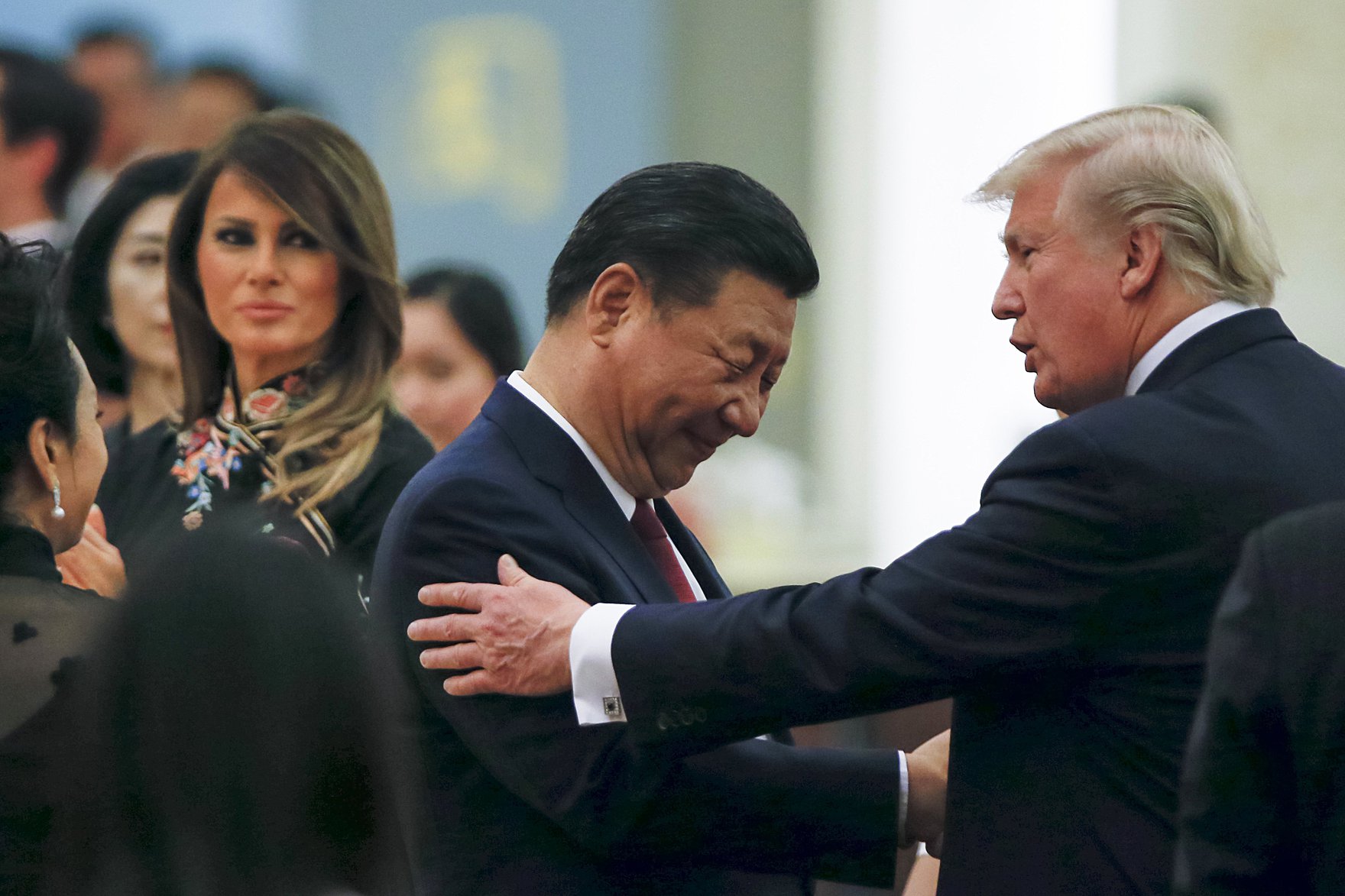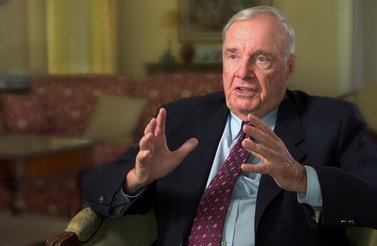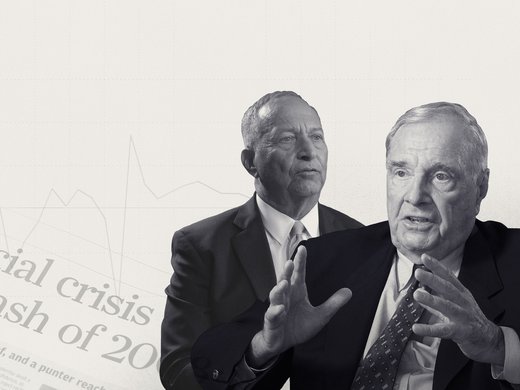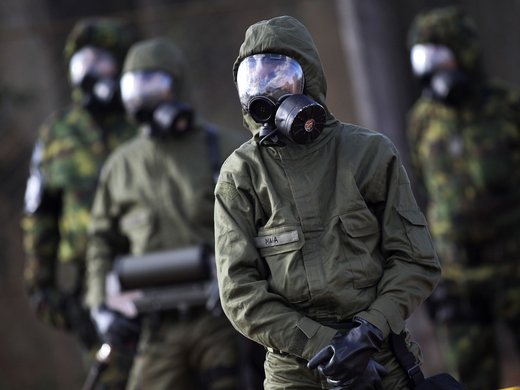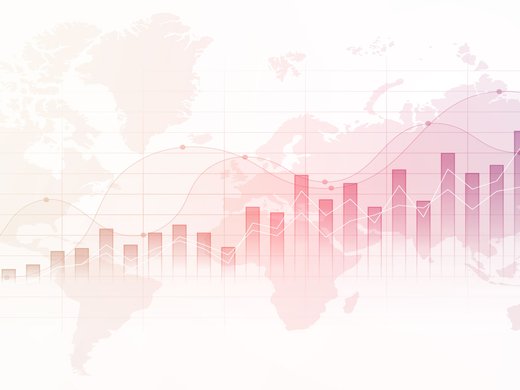Ten years ago, the Group of Twenty (G20) leaders gathered in Washington, DC, for their first-ever summit. They met at the bleakest point of the global financial crisis, in the dark days following the bankruptcy of Lehman Brothers, when the global financial system seemed poised to seize up in systemic dysfunction. With global output, employment and trade all plummeting, a sense of crisis hung over the discussions.
A decade on, G20 leaders — including Canadian Prime Minister Justin Trudeau — will meet this week in Buenos Aires, Argentina, for their annual summit. The prevailing mood of the meeting will not be one of crisis. Indeed, after a long, drawn-out recovery, industrial production and global trade have grown rapidly over the past two years, while unemployment in advanced economies has finally returned to its pre-crisis level. Nevertheless, the G20 confronts a challenge that is no less daunting than that faced a decade ago.
In some respects, in fact, the task facing G20 leaders in Bueno Aires is more difficult than the challenge faced in Washington. In 2008, all G20 countries confronted a common threat. The spectre of another Great Depression loomed large, motivating G20 leaders to cooperate to limit the terrible economic and social damage that global economic collapse would have wrought. As British man of letters Samuel Johnson famously remarked: “Depend upon it, sir, when a man knows he is to be hanged in a fortnight, it concentrates his mind wonderfully.”
As a group, G20 leaders agreed to fiscal stimulus and their central banks introduced extraordinary measures to satisfy the panicked rush for liquidity that was spilling over from one market to another, threatening global financial dysfunction. They also committed to resist protectionism. Their fealty to open markets was important; in the 1930s, such policies likely spread economic stagnation and impeded efforts to restore the global economy to full employment.
The temptation to succumb to beggar-thy-neighbour policies and tit-for-tat tariffs was undoubtedly great. But having resisted the siren call of economic nationalism at the nadir of the crisis, leaders 10 years on face a threat to the global trading system that is bigger than ever. With US tariffs on China set to go from 10 percent to 25 percent in the new year, in Buenos Aires, G20 leaders will anxiously await the outcome of the bilateral meeting between US President Donald Trump and China’s President Xi Jinping. Arguably, their meeting is the main event.
Given the mercurial nature of the US president, it is impossible to predict the outcome of the US-China summit. It is clear, however, that the risk of a trade war cannot be dismissed. That possibility, surely, was a key take-away from the showdown between China and the United States at the Asia-Pacific Economic Cooperation forum held earlier this month.
To put it mildly, a trade war between China and the United States would not be helpful to the global economy. Global production chains have been forged, linking countries through trade in ways that were unimaginable only a few decades ago. For an increasing array of goods, it is no longer meaningful to consider a product to be made in a single country; it may have been assembled in a specific country, but its component parts are likely to have been sourced in five or more other countries — and China is often on the list. Breaking these chains would disrupt production across a wide swath of countries and erode the franchise value of those firms most dependent on them.
While a trade war could inflict economic costs on all G20 members, the possible impact on international cooperation is more troubling. Just as turning to tariff barriers and the use of beggar-thy-neighbour policies undermined international efforts to restart the global economy and deal with emerging threats to international security in the 1930s, a trade war today could frustrate the international cooperation needed to deal with global challenges.
These challenges include both short-term risks and long-term threats. As improbable as it might seem, given the improved economic conjuncture, short-term risks include the possibility of financial crisis. While many observers worried about a possible disorderly adjustment of the US dollar prior to the global financial crisis, far fewer anticipated the source and severity of the global financial crisis, which was fuelled by a bonfire of mortgage-backed securities. Today, there are worrying parallels between the growth of mortgage-backed derivative securities in the prelude to the global financial crisis and the recent growth of highly leveraged lending and collateralized lending obligations (CLOs).
There are other possible triggers, including a disruptive Brexit scenario that could result in legal limbo for derivatives contracts. And failure to plan for and mitigate risks resulting from the phasing-out of key interest rate benchmarks, in particular the London Interbank Offered Rate, could also prove disruptive. Looking further into the future, meanwhile, climate change will test international cooperation. The latest report by the Intergovernmental Panel on Climate Change warns of the economic, social and security challenges of global warming. Meeting these challenges will require a renewed commitment from nations to work together.
That spirit of cooperation, demonstrated in common actions to thwart a common threat, was evident in the dark days following the Lehman bankruptcy in autumn of 2008. The G20’s response a decade ago did not materialize spontaneously; it took the leadership of the United States, as the largest player in the global economy, in providing much-needed crisis management. US Treasury officials played a major role in laying the foundations for the G20’s response to the crisis. At the same time, the US Federal Reserve Board stabilized the global financial system by providing swap lines to central banks around the globe.
Surely, there is one question on everyone’s mind in Buenos Aires: could the United States be relied on today to provide that kind of leadership?
After two years of the Trump administration’s sustained attacks on the international trade, finance and security arrangements that have supported global growth and development for the past 70 years, the mutual trust needed for global cooperation has been eroded. If a frank discussion about safeguarding the global economy from crisis isn’t on the agenda for Buenos Aires, it should be. Otherwise, the G20 summit will almost certainly be a sideshow to the US-China bilateral, where the bricks for economic crisis could be laid.
